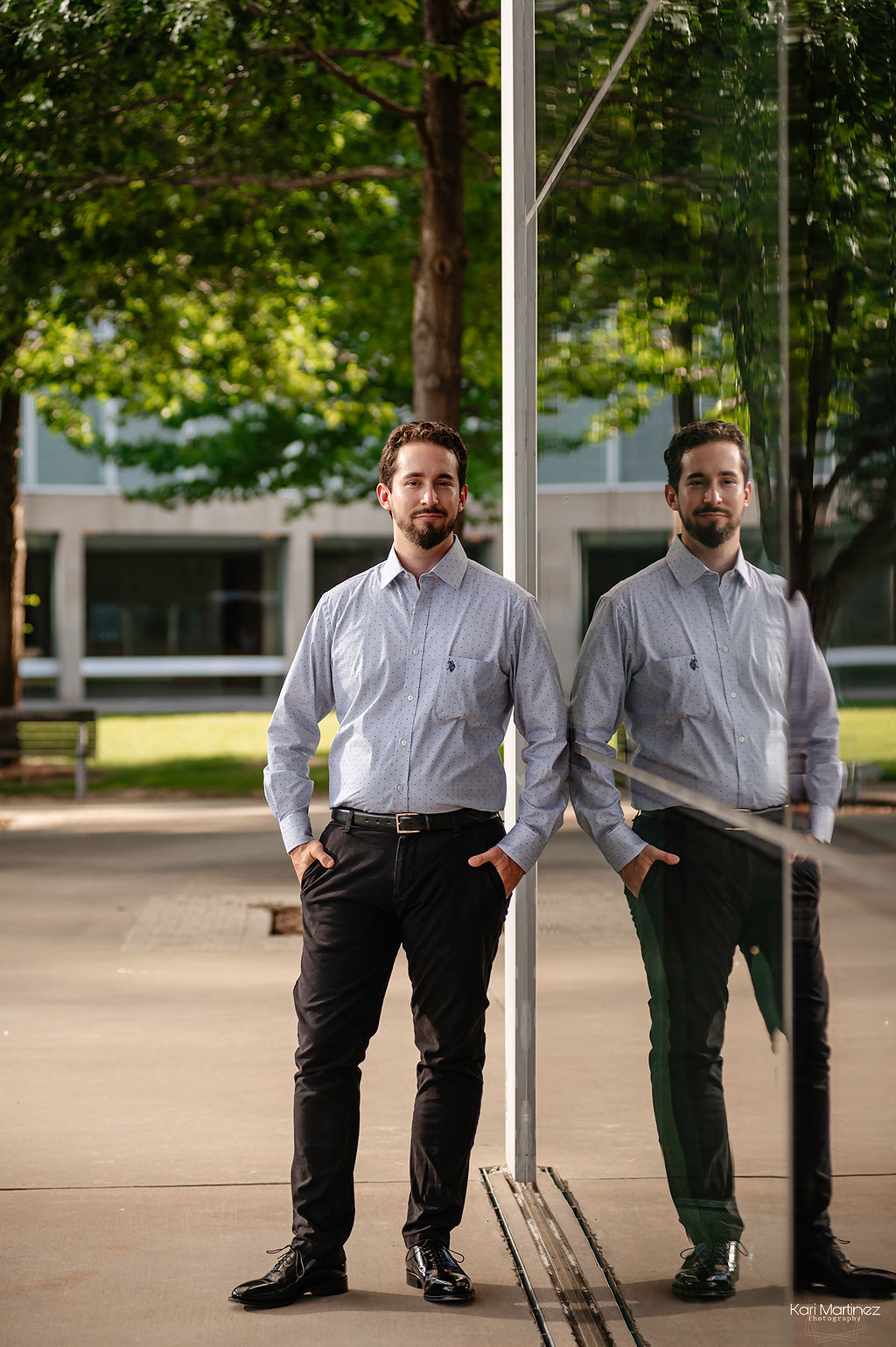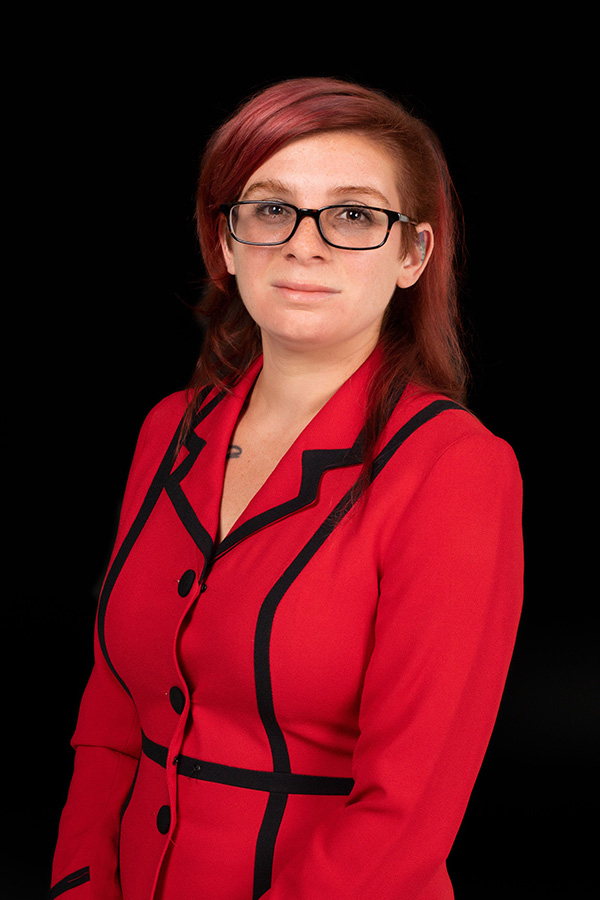Each year, from Sept. 15 to Oct. 15, the U.S. officially acknowledges the tremendous cultural, political and social contributions that Latino communities — be they rooted in the Americas, the Caribbean, Europe or elsewhere — have made to America and their ongoing impact on the nation’s history.
But for Carlos R. Hernández, Ph.D., and Reyna Esquivel-King, Ph.D., both newly minted assistant professors at Wayne State, exploring and uplifting the presence and power of Latino communities is a year-round, everyday endeavor.

Hernández, who joined the WSU faculty 2022 as an assistant professor in the Center for Latino/a and Latin American Studies with a joint appointment in the Department of History, formerly served as the Joseph C. Fox Visiting Research Fellow at El Colegio de México in Mexico City. There, he completed much of the research for his current book project, Paradise Lost: Beach Tourism, the Mexican State, and the Making of Cancún.
Meanwhile, Esquivel-King, who also joined the university in 2022 as an assistant professor in the Center for Latino/a and Latin American Studies, holds a Ph.D. in Latin American history. She currently teaches Latin American history courses.
Recently, both took time to share a few thoughts on the history and significance of National Hispanic Heritage Month, the observance’s relevance to WSU and the larger metropolitan Detroit area, and how all of our communities can learn more.
What is the history behind Hispanic Heritage Month and what is the focus of the celebration?
Carlos R. Hernández: Hispanic Heritage Month — also known as Latino/a or Latinx Heritage Month — is celebrated annually in the United States from Sept. 15 to Oct. 15. President Lyndon B. Johnson established Hispanic Heritage Month in 1968 through federal law after decades of Latinx struggles for recognition, equality and inclusion.
Reyna Esquivel-King: We celebrate our culture and heritage. Several major Latinx figures like Frida Kahlo and Diego Rivera are featured. The independence days of several Latin American countries, like Mexico and Nicaragua, are recognized during this month. We also highlight the local population by writing articles and discussing the wonderful wealth of Latinx businesses and organizations in Detroit, like Ser and La Sed (Latin Americans for Social and Economic Development).
Tell us about the importance of Hispanic Heritage Month in Detroit.

Esquivel-King: It is very important here in metro Detroit, as we have a large Hispanic population in the Southwest known as Mexicantown. This month gives us a chance to highlight and applaud the accomplishments and contributions of the Latinx population in Detroit. It allows a space for Latinx people to be proud of their heritage and celebrate themselves and their friends and family.
Are there particular people and organizations that highlight the impact of the Hispanic community in Detroit?
Esquivel-King: Yes. SER in metro Detroit is one of the most important organizations. They help thousands of different types of people by providing education and training that will lead to better job prospects and opportunities. At the Amigos de Ser luncheon, a fundraiser, they celebrated exceptional people who have become successful with the help of SER. They also provide services for the youth to help them gain skills that will help them after high school graduation.
Hernández: I am a historian of Mexico, and I am teaching Mexican history next semester. As a plug for my class, I invite everyone to visit the Detroit Institute of Arts and check out Diego Rivera’s Detroit Industry Murals. Diego Rivera and his partner, Frida Kahlo, were arguably the most important Mexican artists of the early 20th century.
How should people celebrate Hispanic Heritage Month?
Esquivel-King: Educate yourself by reading or watching a documentary on any Latinx people, cultures and histories. Attend talks and presentations on campus and around the metro Detroit area. Give Latinx businesses your support.
Hernández: There are as many ways to celebrate Hispanic Heritage Month as there are people who identify` as Hispanic, Latino/a or Latinx. There is no one, single or definitive Latinx story. Some people celebrate their heritage by learning about Latinx and Latin American history, while others prefer to engage in public activism. It’s really up to you.
How can we continue to raise awareness of Hispanic heritage?
Hernández: We can raise awareness of Latinx heritage by recognizing the plurality of Latinx experiences. The very terms we use — Hispanic, Latino/a or Latinx — reflect that plurality. Though these labels have their own histories and connotations, different communities may invoke different terms to express their social identities.
What other realities should people understand about Hispanic communities?
Hernández: It’s important to remember that there’s no single Latinx or Latin American experience. The region that has been known as Latin America since the 19th century contains multiple countries and subregions. Similarly, Latinx Americans come from a variety of backgrounds. Some are immigrants, while others have lived in what is now the United States — which includes Puerto Rico — for centuries. Latinx Americans also speak multiple languages — from English and Spanish to Haitian Creole and Yucatec Mayan, among many others. And Latinx Americans come from a variety of ethnic and racial backgrounds as well as from diverse spiritual and religious traditions.
Esquivel-King: That we are here! And we are also a very diverse group of people with different histories, cultures and ethnicities! Usually, we get lumped into one category, but I want others to acknowledge and be sensitive to our differences.
